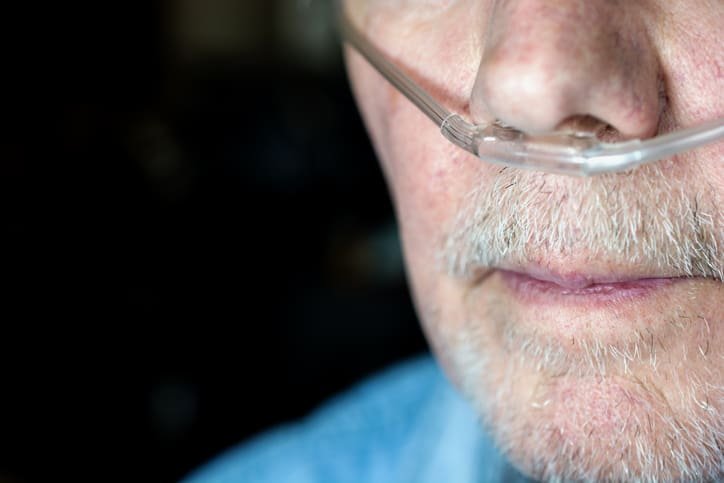Frequently Asked Questions
Dr. Mahler answers “real” questions
often asked by his patients with COPD

How Many Hours Do I Need To Use My Oxygen?
Dear Dr. Mahler:
For the past 2 years, I have been using oxygen since being discharged from the hospital after a COPD flare-up. I was told to use the oxygen at a setting of 2 for 24/7. However, I find this requirement somewhat onersome.
I am 72 years old and use a nebulizer for my three different medications. I also go to a maintenance pulmonary rehab program at the local hospital here in Dayton.
My question is, How many hours do I really need to use the oxygen? When I take the oxygen off for 5 - 10 minutes, my sat stays around 87-88% and my breathing is fine. I an very conscientious about using oxygen at night when I sleep.
Thanks for your answer.
Kenny from Dayton, OH

How Much Oxygen Should I Use?
Dear Dr. Mahler:
I am 71 years old and have severe COPD for several years, but am doing fine and have adjusted to my situation. I use oxygen 24/7 from a stationary concentrator at home and from a POC with activities and travel. I fly (at least before COVID-19) to visit my children/grandchildren in Wisconsin.
However, I am confused about my oxygen flow rate. My doctor told me that 2 liters/minute is what I need at rest, and my oxygen saturation level is usually 91-92%. However, I turn up the oxygen to 4 liters/min because I feel better when my saturation level is 94-95%.
My POC has pulse flow and I use the highest number – 5 – which maintains a saturation around 91% when I am active.
What are your thoughts on this?
Jim in Austin, TX

Harmonicas for COPD: Provides Better Breathing
Dear Dr. Mahler –
I recently read about a pulmonary rehab program that includes playing music on a harmonica in addition to usual exercises. What are your thoughts? I haven’t tried it, but it sounds like fun.
Claudia from Jackson, MS

Nebulizer Therapy For COPD – Can It Help Me Breathe Easier?
There are four major reasons why your health care professional might prescribe nebulizer therapy: 1) cognitive impairment - such as a memory problem (dementia) or confusion; 2) problems with use of hands - such as arthritis of the hands and wrists or tremor; 3) difficulty coordinating release of the medication from the device, not inhaling correctly, and not holding your breath long enough; and 4) a low inspiratory force required to break up and then inhale powder particles out of a dry powder inhaler.
